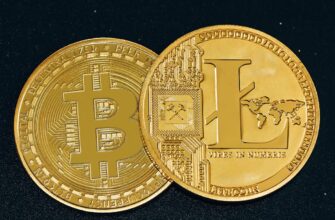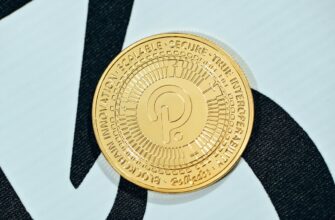- Introduction: The Ruling That Shook the Crypto World
- What Was the XRP Judgement About?
- Key Takeaways From the Ruling
- Immediate Impact on Ripple and XRP
- Broader Implications for the Crypto Industry
- What Comes Next? The Road Ahead
- FAQ: Your XRP Judgement Questions Answered
- Conclusion: A Defining Moment for Crypto Law
Introduction: The Ruling That Shook the Crypto World
The July 2023 XRP judgement marked a watershed moment in cryptocurrency history. When U.S. District Judge Analisa Torres ruled that Ripple Labs’ XRP token was not a security when sold to public exchanges, it ignited market rallies and reshaped regulatory expectations. This landmark decision in SEC v. Ripple Labs addressed a core question plaguing the industry: When does a digital asset cross into “security” territory? Here’s why this case matters—and what it means for crypto’s future.
What Was the XRP Judgement About?
The U.S. Securities and Exchange Commission (SEC) sued Ripple Labs in December 2020, alleging the company illegally sold $1.3 billion in unregistered securities via XRP token sales. The SEC claimed XRP functioned as an investment contract, where buyers expected profits from Ripple’s efforts. Ripple countered that XRP was a currency or utility token, not a security. After nearly three years of legal battles, Judge Torres delivered a nuanced verdict:
- Institutional Sales: Deemed investment contracts (violating securities law)
- Programmatic Sales on Exchanges: Not securities due to blind bid/ask transactions
- Other Distributions (e.g., employee rewards): Not securities
Key Takeaways From the Ruling
Judge Torres’ split decision established critical precedents for crypto regulation:
- The “Howey Test” Flexibility: Applying the SEC’s own framework, the court emphasized that token sales must be evaluated based on transaction context—not blanket asset classifications.
- Exchange Listings ≠ Securities: Retail purchases on exchanges lack the “expectation of profit” tied to issuer efforts, differentiating them from direct institutional sales.
- Clarity for Secondary Markets: Tokens traded post-ICO may evolve beyond their original status, reducing regulatory ambiguity for exchanges like Coinbase.
Immediate Impact on Ripple and XRP
The verdict triggered seismic shifts overnight:
- Price Surge: XRP soared 75% within hours, reclaiming its position as a top-5 cryptocurrency.
- Exchange Relistings: Major platforms (Coinbase, Kraken) swiftly relisted XRP after delisting it in 2020.
- Business Momentum: Ripple signed 20+ new institutional clients post-ruling, citing renewed confidence.
However, the SEC’s ongoing appeal (filed August 2023) leaves institutional sales compliance in flux until resolved.
Broader Implications for the Crypto Industry
The XRP judgement created ripple effects beyond Ripple:
- Legal Shields for Exchanges: Binance and Coinbase cited the ruling in motions to dismiss SEC lawsuits, arguing tokens like SOL or ADA resemble XRP’s exchange-sale model.
- Regulatory Pressure Shift: The SEC faces heightened scrutiny over its “regulation by enforcement” approach, with Congress accelerating efforts for clearer crypto laws.
- Market Confidence Boost: Clarity reduced perceived systemic risk, attracting renewed institutional investment into altcoins.
What Comes Next? The Road Ahead
While pivotal, the XRP judgement isn’t the final word:
- SEC Appeal: A ruling from the Second Circuit Court is expected in 2024–2025. Reversal could reignite uncertainty.
- Congressional Action: Bills like the FIT21 Act aim to formalize crypto asset classifications, potentially overriding case law.
- Global Influence: Regulators worldwide (EU, UK, Singapore) are monitoring U.S. developments to align frameworks.
Ripple’s partial victory underscores that regulatory battles will be fought token-by-token—not industry-wide.
FAQ: Your XRP Judgement Questions Answered
- Q: Is XRP fully in the clear legally?
A: Not yet. The SEC appealed the ruling, focusing on overturning the “programmatic sales” decision. Final resolution may take years. - Q: How does this affect other altcoins?
A: Tokens with decentralized trading histories (e.g., ETH, ADA) gained legal leverage. Projects with centralized pre-sales remain vulnerable. - Q: Can the SEC still sue other exchanges?
A: Yes, but the ruling weakens arguments that all tokens are securities. Exchanges now have precedent to challenge allegations. - Q: What penalties did Ripple face?
A> Ripple must pay $480 million for violating securities laws via institutional sales. Fines could rise if the SEC wins its appeal. - Q: Does this make XRP a safe investment?
A> Crypto remains high-risk. While regulatory clarity helps, XRP’s value depends on adoption, tech utility, and market sentiment.
Conclusion: A Defining Moment for Crypto Law
The XRP judgement forced regulators, exchanges, and investors to confront crypto’s legal gray areas head-on. By distinguishing between sales channels, Judge Torres acknowledged blockchain’s uniqueness while upholding securities law intent. Though appeals loom, this decision accelerated the push for tailored legislation—proving that in the clash between innovation and regulation, context is king. As Ripple CEO Brad Garlinghouse declared: “This is not just a win for Ripple; it’s a win for the entire industry.”








